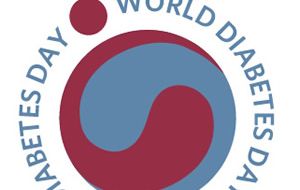MercoPress. South Atlantic News Agency
Silent killer diabetes strikes 336 million people and keeps advancing
 High calorie diets and sedentary lifestyles are spreading the disease
High calorie diets and sedentary lifestyles are spreading the disease Diabetes will strike one in 10 adults by 2030, hampering economic growth in the world's fastest-growing economies as it kills people in their most productive years, according to a report released on World’ Diabetes Day.
About 552 million people may have diabetes by 2030, compared with about 366 million now, if nothing is done to curb the epidemic, the International Diabetes Federation said in a report Monday. As many as 183 million people have the disease and don't know it, the Brussels-based federation said.
High-calorie diets and sedentary lifestyles are fanning the spread of diabetes in nations such as China, which with 90 million diabetics has more people with the condition than any other. People between 40 and 59 have the greatest proportion of cases, according to the report.
“In every country and in every community worldwide, we are losing the battle against this cruel and deadly disease,” Jean Claude Mbanya, the federation's president, said in a statement. The group represents more than 200 national diabetes associations around the world.
Productivity losses and medical treatment for non- communicable diseases such as diabetes, cancer and heart disease will total 47 trillion dollars through 2030, the World Economic Forum and Harvard University wrote in a study published in September.
According to the World Health Organization there are about 346 million people worldwide with diabetes, with more than 80% of deaths occurring in developing countries. The agency projects diabetes deaths will double by 2030 and said the International Diabetes Federation's prediction was possible.
“It's a credible figure,” said Gojka Roglic, head of WHO diabetes unit. “But whether or not it's correct, we can't say.”
Roglic said the projected future rise in diabetes cases was because of aging rather than the obesity epidemic. Most cases of diabetes are Type 2, the kind that mainly hits people in middle age, and is linked to weight gain and a sedentary lifestyle.
Roglic said a substantial number of future diabetes cases were preventable. “It's worrying because these people will have an illness which is serious, debilitating, and shortens their lives,” she said. “But it doesn't have to happen if we take the right interventions.”
Sanofi, Novo Nordisk A/S and Eli Lilly & Co. are among makers of drugs to treat diabetes. Sales of such therapies grew 12% last year to 34 billion dollars, making them the fourth- biggest therapeutic class by sales worldwide, behind medicines for cancer, cholesterol, and breathing disorders, according to market researcher IMS Health.




Top Comments
Disclaimer & comment rulesCommenting for this story is now closed.
If you have a Facebook account, become a fan and comment on our Facebook Page!